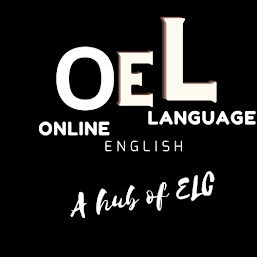How to Learn Vocabulary for IELTS: A Comprehensive Guide
Introduction
How to learn vocabulary for IELTS.We help you to learn vocabulary for IELTS.Lets check the strategies. As you embark on your journey to master the IELTS exam, one of the crucial aspects you'll need to focus on is expanding your vocabulary. A strong vocabulary not only helps you understand the reading passages and listening to audio but also enables you to express your ideas effectively in the speaking and writing sections. In this comprehensive guide, we will delve into various strategies and techniques that will aid you in learning and retaining vocabulary for IELTS. So, let's dive in!
Why Vocabulary is Important for IELTS
Before we explore the strategies, it's important to understand why vocabulary plays a pivotal role in the IELTS exam. Vocabulary forms the building blocks of any language, and for IELTS, it serves as a key component in all four sections: Reading, Listening, Writing, and Speaking. Here's a breakdown of how vocabulary impacts each section:
1. Reading
In the Reading section, you'll encounter a wide range of texts, from academic articles to newspaper extracts. A rich vocabulary will enable you to comprehend the meaning of unfamiliar words and phrases, helping you answer the comprehension questions accurately.
2. Listening
During the Listening section, you'll hear various accents, speeds, and contexts. A robust vocabulary will allow you to understand the spoken language and grasp the main ideas, supporting details, and specific information conveyed in the audio clips.
3. Writing
The Writing section requires you to articulate your thoughts clearly and coherently. A diverse vocabulary allows you to express your ideas precisely, use appropriate synonyms and idiomatic expressions, and enhance the overall quality of your written responses.
4. Speaking
In the Speaking section, showcasing a wide-ranging vocabulary will impress the examiner. It demonstrates your language proficiency and enables you to discuss a wide array of topics with fluency and accuracy.
Strategies to Enhance Vocabulary for IELTS
1. Read Extensively
Reading extensively is one of the most effective ways to expand your vocabulary. Choose a variety of materials such as newspapers, magazines, novels, and academic articles. Make it a habit to encounter new words and phrases in context and try to infer their meanings from the surrounding text. When you come across unfamiliar words, make a note of them, and later, look up their definitions, synonyms, and example sentences.
2. Utilize Contextual Clues
Contextual clues are an invaluable resource when it comes to deciphering the meaning of unknown words. Pay attention to the words or phrases surrounding the unfamiliar word, as they can provide hints about its definition. Analyze the context in which the word is used, consider the tone and the overall message being conveyed, and make an educated guess about its meaning.
3. Create Personalized Word Lists
Maintaining a personal word list is an excellent technique to organize and revise new vocabulary. Write down words, phrases, and idioms that you encounter while studying or during everyday activities. Categorize them based on themes or topics, such as technology, education, environment, etc. Regularly review and practice using these words to reinforce your memory.
4. Use Flashcards and Mnemonics
Flashcards are a popular and efficient tool for memorizing new vocabulary. Create flashcards with the target word on one side and its definition, synonyms, antonyms, and example sentences on the other. Review the flashcards regularly, testing your recall and understanding. Additionally, mnemonics, such as creating vivid mental images or associating new words with familiar concepts, can aid in retention.



0 Comments